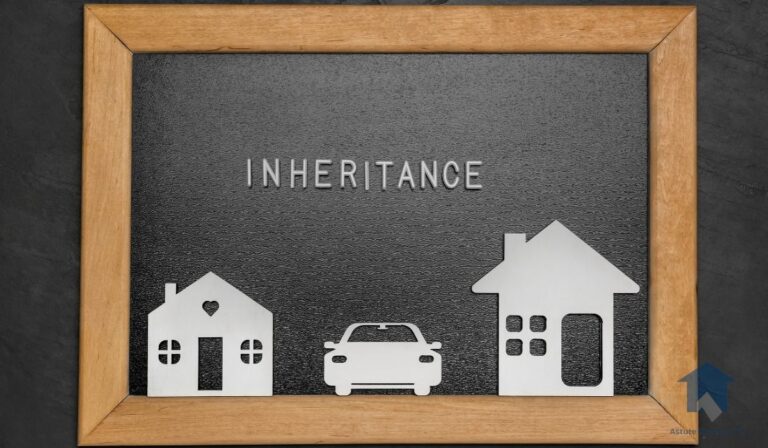Did you know that the probate process for an inherited property can sometimes be expedited in Baltimore? Yes, that is if all family members are in agreement about the home’s disposition.
However, if not everyone is on board with one particular way to proceed then dealing with family emotions when selling an inherited home can get a bit too stressful at this point. There are alternative options to selling an inherited house, after all.
Whatever the case may be, it’s important to know how to work with people rather than against them, and that’s what this guide is about.
By the way, make sure to do enough property preparation when selling an inherited house to get the most out of your property. You can sell an inherited house to us, though, and we’ll buy it as is.
Short Summary
- Acknowledge and understand the deep emotional connections to family homes, including memories, identity, and sentimental value, which vary among family members.
- Recognize how grief stages manifest in the home sale process and the impact of “home attachment” influenced by cultural and generational differences.
- Be aware of potential conflicts arising from unequal emotional attachment, disagreements over timing, financial disparities, and misunderstandings about the deceased’s wishes.
- Anticipate the resurfacing of past family dynamics and their influence on decision-making regarding the inherited house.
- Create space for collective grief and memory-sharing to support family members and acknowledge the emotional weight.
- Establish structured family meetings with clear communication guidelines and involve neutral third parties when needed.
- Embrace collaborative decision-making for major choices like selecting a real estate agent and setting the asking price.
- Develop a fair system for dividing personal possessions and balance sentimental value with financial realities.
- Engage a compassionate real estate professional with probate expertise and local market knowledge for emotional support and efficient handling of the sale.
- Implement clear communication strategies, define roles and responsibilities, and manage expectations regarding pricing and offers to minimize conflict.
- Selling to a cash buyer in Baltimore can offer a fast and hassle-free solution, especially if the property requires significant repairs or you need to sell quickly to settle the estate.
Understanding The Emotional Landscape Of Inherited Properties
Inheriting a home is rarely a simple transaction; it’s often an emotional experience layered with family traditions, history, and memories. Especially in a city like Baltimore, where neighborhoods often have deep roots and strong community ties, the emotional weight associated with an inherited home can be significant.
Before even considering practical steps like contacting a real estate agent, it’s crucial to acknowledge and understand these emotional factors.
The Connection Between Homes And Family Memories/Identity
A family home is more than just bricks and mortar; it’s a repository of shared experiences. The scent of your grandmother’s baking, the marks on the wall showing your childhood growth, the garden your father tended – these are the physical spaces that hold profound sentimental value. Selling it can feel like severing a connection to the past, especially in established Baltimore neighborhoods where generations have lived in the same house.
Common Emotional Responses Different Family Members May Experience
When dealing with inherited property, family members can experience a wide range of emotions, often simultaneously and with varying intensity. Some may feel a strong desire to preserve the family home at all costs, viewing it as a sacred trust. Others may feel overwhelmed by the responsibility and eager to liquidate the asset. Grief, guilt, resentment, and even relief are all common emotions that can surface during this process. These diverse family emotions can be further complicated by existing family dynamics.
How Grief Stages Manifest Specifically In Home Sale Situations
The sale of an inherited house can trigger the stages of grief, similar to the loss of a lost loved one. Denial might manifest as resistance to acknowledging the need to sell or unrealistic expectations about the market value. Anger could surface as frustration with other multiple heirs or the probate court process. Bargaining might involve attempts to find alternative solutions to selling, such as renting the property out. Depression can arise from the realization of the finality of the sale, and acceptance comes when family members reconcile with the decision and focus on moving forward.
The Psychological Concept Of “Home Attachment” And Its Impact
Psychologically, “home attachment” refers to the emotional bond individuals form with their living spaces, providing a sense of security and belonging. The stronger the home attachment, the more difficult it can be to let go, leading to resistance and conflict during the inherited property sales process.
Cultural And Generational Differences In Emotional Attachment To Family Homes
Cultural and generational differences can significantly influence the emotional attachment to family homes. Older generations may place a higher value on preserving the family property as a symbol of legacy and stability. Younger generations may be more pragmatic, prioritizing financial considerations and viewing the inherited home as an asset to be utilized for their own goals. Understanding these differences is crucial for navigating potential disagreements and finding common ground.
Identifying Common Sources Of Family Conflict In Inheritance Situations
Even in the most loving families, the process of handling an inherited property can unearth deep-seated conflicts. The combination of grief, financial considerations, and differing perspectives can create a perfect storm of tension. Recognizing these potential flashpoints early on is key to mitigating their impact and fostering a more collaborative approach to selling an inherited family home.
Unequal Emotional Attachment Among Siblings/Family Members
Not all family members will share the same level of emotional attachment to the inherited house. One sibling may have spent more time there, creating stronger memories, while another may have moved away and feel less connected. This disparity in sentimental value can lead to disagreements about the home’s fate, with those more attached wanting to preserve it and those less attached favoring a sale.
Disagreements Over Timing (Sell Now vs. Later)
The question of when to sell is a common source of contention. Some family members may want to sell immediately to alleviate financial burdens or simplify their lives. Others may advocate for waiting, hoping the market value will increase or wanting more time to process their emotions. These differing timelines can create friction and delay the decision-making process.
Financial Disparities And Needs Among Heirs
Financial realities can significantly influence each heir’s perspective. One sibling may be facing financial hardship and view the sale of the inherited property as a lifeline. Another may be more financially secure and prioritize preserving the family home, even if it means sacrificing potential financial gains. These financial disparities can lead to resentment and complicate efforts to reach a mutually agreeable solution.
Misunderstandings About The Deceased’s Wishes
Interpreting the deceased’s wishes regarding the family property can be a minefield. If the will is ambiguous or doesn’t explicitly address the inherited home, family members may have conflicting interpretations of what their loved one would have wanted. These misunderstandings can be fueled by personal biases and pre-existing family dynamics, leading to heated debates.
Past Family Dynamics Resurfacing During Decision-Making
Inheritance situations often act as a catalyst for pre-existing family dynamics to resurface. Old rivalries, unresolved conflicts, and communication patterns can all influence the way family members interact and make decisions regarding the inherited house. These deeply ingrained patterns can make it challenging to approach the situation with objectivity.
Practical Strategies For Managing Emotions Before Listing The Home
Before you even think about contacting a real estate professional or navigating the legal landscape of inherited real estate, it’s vital to address the emotional challenges head-on. Taking proactive steps to acknowledge and manage these emotions can pave the way for a smoother, more collaborative, and ultimately more successful sale.
Creating Space For Collective Grief And Memory-Sharing
Acknowledge that grief is a natural and necessary part of the process. Create opportunities for family members to come together, share memories, and collectively grieve the loss of their loved one and the potential loss of the family home.
Documenting And Preserving Meaningful Aspects Of The Home
Before selling an inherited, take the time to document and preserve the aspects of the home that hold the most sentimental value. This could involve taking photographs, creating videos, or even salvaging architectural details or cherished items.
Family Meetings: Structure And Guidelines For Productive Discussions
Establish a structured approach to family meetings to ensure that everyone has a chance to voice their opinions and concerns. Set an agenda, establish ground rules for respectful communication, and designate a facilitator to keep the discussion on track.
When And How to Involve Neutral Third Parties
If family dynamics are particularly strained or disagreements are escalating, consider involving a neutral third party. This could be a professional mediator, a financial advisor, or a compassionate real estate professional experienced in handling inherited property sales. A neutral third party can provide an objective perspective and facilitate communication.
Setting Realistic Expectations About The Emotional Process
Acknowledge that the process of selling an inherited house will likely be emotionally challenging and that setbacks are inevitable. Setting realistic expectations about the timeline, the market value, and the potential for conflict can help family members better prepare themselves for the journey ahead.
Navigating Key Decisions With Compassion And Clarity
Once the initial emotions have been acknowledged and addressed, the focus shifts to making practical decisions about the inherited home. Approaching these decisions with empathy, is crucial for minimizing conflict and ensuring a fair market outcome for all involved.
Collaborative Approaches To Major Decisions
Avoid unilateral decision-making and instead, embrace a collaborative approach. Major decisions, such as choosing a real estate agent, setting the asking price, and accepting an offer, should be made collectively, with input from all multiple heirs.
Creating A Fair System For Dividing Personal Possessions
Dividing personal possessions can be a particularly sensitive issue. Establish a fair and transparent system for allocating items, such as allowing each family member to choose items in turn or holding an auction where proceeds are divided equally.
Balancing Sentimental Value With Financial Realities
It’s important to acknowledge the sentimental value of the inherited house while also recognizing the financial realities of the situation. Explore options for preserving cherished aspects of the home, such as taking photographs or salvaging architectural details, while also being realistic about the market value and the costs associated with maintaining the property.
Timeline Considerations That Respect Emotional Readiness
Avoid rushing the process and allow family members adequate time to process their emotions and make informed decisions. Be mindful of individual timelines and avoid pressuring anyone to move faster than they are comfortable with.
Technology Tools That Can Facilitate Long-Distance Collaboration
For family members who live far away, technology can be a valuable tool for facilitating collaboration. Utilize video conferencing, online document sharing platforms, and project management tools to keep everyone informed and engaged in the decision-making process.
Working with Real Estate Professionals Who Understand Inherited Home Dynamics
Navigating the sale of an inherited home requires a special kind of real estate professional – one who not only possesses market expertise but also demonstrates empathy and understanding for the emotional challenges involved. Choosing the right real estate agent can make all the difference in ensuring a smooth and successful transaction.
Here are the benefits of working with such a professional:
- Emotional Sensitivity: A compassionate real estate professional understands the grief and stress associated with selling a family home and provides support and guidance throughout the process.
- Mediation Skills: An experienced agent can act as a neutral mediator, helping family members navigate disagreements and reach mutually agreeable solutions.
- Probate Expertise: A knowledgeable agent is familiar with the probate process in Baltimore and can help you navigate the legal hurdles involved in inherited property sales.
- Local Market Knowledge: A local expert understands the nuances of the Baltimore real estate market, ensuring you get the best possible price for the inherited home.
- Time Savings: A skilled agent can handle many of the practical steps involved in the sale, freeing up family members to focus on other priorities.
Navigating The Selling Process While Preserving Family Relationships
The selling process can be stressful, and it’s easy for strain relationships. Here are some tips to navigate it smoothly:
- Communication templates and guidelines: Establish clear communication channels and utilize templates for sharing updates, gathering feedback, and documenting decisions.
- Setting boundaries during the home preparation process: Define clear roles and responsibilities for each family member involved in preparing the home for sale to avoid conflict and ensure everyone feels valued.
- Strategies for fair division of labor and responsibilities: Divide tasks fairly based on individual skills and availability, and be mindful of potential power dynamics within the family.
- Managing differing expectations about pricing and offers: Set realistic expectations about the market value and be prepared to compromise on pricing and offers to reach a mutually agreeable outcome.
- Creating opportunities for closure throughout the process: Acknowledge milestones and celebrate successes along the way to create a sense of closure and strengthen family bonds.
Final Thoughts – Selling To A Cash Buyer Is An Option If Things Are Too Complicated
In Baltimore, selling an inherited house to a cash buyer, like Astute Realty, can be a particularly appealing option in certain situations. If the property requires significant repairs or renovations, or if you need to sell quickly to settle the estate, a cash offer can provide a fast and hassle-free solution.
Call or message us today, and we’ll get back with a cash offer in less than seven days.
Frequently Asked Questions
Why is Selling an Inherited House so Emotional for Families?
Because it’s not just property. It’s a space full of shared history. Family homes often carry deep emotional connections, and parting with them can feel like saying goodbye all over again.
What Causes Most Disagreements When Selling an Inherited Property?
It usually comes down to a mix of grief, money, and timing. Some family members may want to sell quickly, while others need time to process or hold onto sentimental value.
How Can Families Avoid Conflict During the Home-selling Process?
Structure helps a lot. Set up family meetings with clear ground rules, use neutral third parties when needed, and agree on a fair way to divide both decisions and personal items.
Is Selling to a Cash Buyer in Baltimore a Good Idea?
In some cases, absolutely. If the home needs major repairs or you’re facing time pressure, a cash buyer can offer a simple and fast solution, especially during probate.




